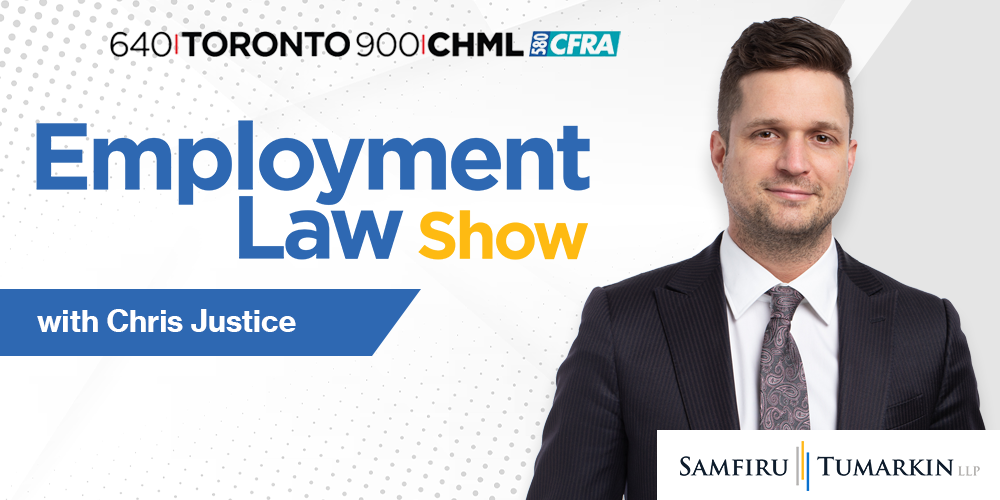Employment Law Show: Ontario – S11 E57

Episode Summary
What is “quiet quitting”? Is it difficult to terminate an employee for cause? Employment Lawyer Chris Justice, Associate at Samfiru Tumarkin LLP, answers those questions and more on the Employment Law Show.
LISTEN BELOW to Ontario’s premiere radio show about employment law and workplace rights featuring the province’s leading employment lawyers. You can catch the show on Saturdays at 640 Toronto, Newstalk 580 CFRA in Ottawa, and 900 CHML in Hamilton as the hosts take calls from listeners and provide vital answers to employees and employers.
Listen to the Episode
Show Notes
- Let go for cause due to performance issues: It is very difficult to terminate an employee for cause, and it is particularly difficult to justify a termination for cause due to performance. Employers need to implement disciplinary measures and in many cases, performance improvement plans to justify the termination. Employees who have been let go for cause in many cases have been wrongfully dismissed.
- Employer suggests quiet quitting: Employees worried about the criticism and reviews by their employers should voice their disapproval in writing. The concept of “quiet quitting” refers to an employee who is only performing at the bare minimum and is not going beyond the scope of their duties. Employers can view this as insubordination. Ultimately employees are not expected to perform tasks outside of their position.
- Pressured to retire from employer: Retirement, as well as a resignation, must be completely voluntary. Employees that are pressured to resign, particularly due to a medical condition, can pursue human rights damages. Employers must accommodate an employee’s condition up until the point of undue hardship. Employees are able to take a medical leave of absence for as long as necessary if they have the support of a treating doctor.
- Put on probation: Probation periods allow employers to determine if an employee is the right fit for a company, or terminate the employee without offering severance. This evaluation period occurs at the start of employment and is typically three months long. Probation is not automatic and must be consented to in an employment contract.
Need an employment lawyer?
- Pocket Employment Lawyer: Before you call a lawyer, use the Pocket Employment Lawyer to find out if you might have a case.
- Severance Pay Calculator: Discover how much severance pay you should get when you lose your job. Used successfully by nearly 2 million Canadians.
- Watch our TV Shows: Get further clarity on your rights by watching episodes of our popular TV show.




